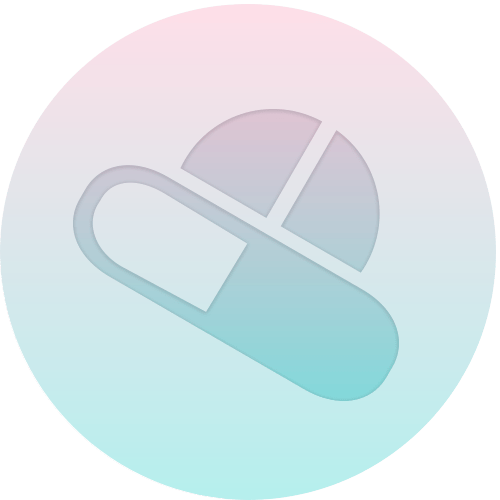Spring cleaning your medicine cabinet

Thanks everyone for dropping by and sending emails through wishing us all a happy world pharmacist day! You guys made it extra special for us this year.
I came across an interesting case the other day and thought you may relate to it. A regular patient of mine came in a couple of days ago asking me if she can still use the “Laxol” (constipation tablets) that was prescribed by her doctor. I had a look at the bottle and could barely read the writings on the faded label. However, the date was still legible, and it came to a shock that the tablets were dated back to 2005! I immediately reply with no hesitation, saying: “I’m quite certain that those tablets are older than your son!”. “Let me take care of it for you and give you some “fresh” ones.”
I’m sure most of you have heard of sayings like; “red wine gets better with age” or “men get better with age (I’m only referring to maturity here). However, ageing in medicines has a completely different take.
I come across “aged” medicines regularly when patients return their unused medicines to the pharmacy. One time we were given old fashioned linctus amber glass jars which contained cough medicine which was much older than I am! Those “antique” medicines usually ended up in our in-house museum amongst the hall of frames such as old bronze mortar and pestle and a British Pharmacopeia with dismembering pages. We have quite a collection of them in the dispensary. However, the rest of the “aged” medicines ends up in our special disposal bin.
This encounter with my patient has triggered me to talk about the medicine cabinet that we all have in our home. I’m not sure about you, but even though I’m a pharmacist and manage patients’ medicines for a living, my medicine cabinet at home reflects nothing of my profession. The term I would use to describe it is – a dumping site. I’m sure many of you could relate to what I mean. All the boxes or skillets containing medicines would start off stacking on top of each other nicely and then as time progresses, they would eventually just be dumped in there or squeezed in between wherever there is a gap in the cabinet. If this sounds like your medicine cabinet, I can tell you that it is okay – you are not alone!
As spring has technically arrived our shores (despite what the temperature outside may indicate), there comes that time-honoured ritual of spring cleaning. Cleaning behind the fridge, assessing our wardrobes, and replacing the batteries in our smoke alarms are on our must-do list. But many of us forget that our medicine cabinet is begging for attention. It’s important to extend spring cleaning to your medicine cabinet. Chances are if you open your medicine cabinet, you’ll find some old prescription bottles or maybe some of “that might come in handy someday” leftover medication. In reality, those medications may have already way passed its used by date and may cause more harm than you realise.
The first thing I would do is to check the expiry date of each medication. What expiry date refers to is how long a medicine product that can be kept for when unopened. The word “unopened” is the key here. In order words, the expiry date specified on the packaging does not apply once you’ve opened a medication. The clock starts ticking on its shelf life once you opened the medicine.
Some of you might ask me – So how long can we keep opened medicines for even if their expiry is still far in the future?
Medications are usually good for about a year from when you open them.
I usually suggest discarding creams or ointments in a pot after 3 months of opening unless you can guarantee that your fingers didn’t touch the product directly. To avoid the introduction of bacteria or gems to those topical products, I would suggest the use of a clean spatula when scooping out the product when using.
It is always a good practice to write the date you opened it on the container or box and get rid of all things opened or partially used for a year.
If you come across an item that has changed colour or smells funny, it must be discarded too.
A lot of people don’t realise that bandages also have a limited lifespan and should be replaced before their adhesive breaks down.
One point I should stress is that any old medications must not be tossed in the trash or flushed down the toilet. This is because they can taint our water supplies. A trip to your local pharmacy is usually the safest way for the disposal of expired medication.
The next step after cleaning out your medicine cabinet is to replenish your stock. The 6 essential medications that I believe every home should have are:
1) Pain/aches/fever relief – incl. Paracetamol and or ibuprofen tablets (liquids for children)
2) Sore throat remedies – incl. Betadine throat Gargle or anti-inflammatory lozenges
3) Topical antiseptic – benzyl peroxide (Crystaderm) or providone-iodine (Betadine)
4) Indigestion – Mylanta or Gaviscon (tablets that are packaged in a blister strip offer longer expiry compared to liquids once it is opened)
5) Anti-diarrheal – loperamide (to stop diarrhoea and helps regulate your bowel back to normal) & electrolytes (to prevent dehydration)
6) Allergy – antihistamine
7) Bandages
After replenishing your essentials, where you keep your medications also plays a crucial role in determining how well they will be kept. Storing your medicines in the bathroom cabinet is not a good idea, and relocation is what I would recommend. Humidity from steamy showers can expedite the expiry of medications. To stop your medicines from losing their effectiveness, it is best to keep them in a dry, cool place and without direct sunlight.
If you are unsure of the indication, use, or expiry date of your medications, please do not hesitate to give me a call or come down to the pharmacy. I am more than happy to answer any queries.
To you and your family’s health,
Chris
Pharmacist


















